Tesco says deflation in electricity and packaging costs means suppliers can help it drop prices. But critics say it is asking too much for too little
Tesco this week launched its biggest range review since Dave Lewis’s ‘Project Reset’ SKU cull of 2015.
Tesco’s entire fresh and packaged goods lineup will be reviewed, with potentially major changes to store layouts following. It leaves suppliers facing a new set of challenges.
Whereas Lewis set out to slash a bloated range to take the fight to the discounters, now an already far more efficient and competitive Tesco is looking at its supply chain to eke out more value and help turn “inflation to deflation”.
But is its new ‘Fit for Growth’ strategy really the “partnership approach” Tesco claims, or a thinly veiled attempt to get suppliers to fill a hole in its profit forecasts?
At a presentation last week, Tesco told its grocery suppliers it would introduce price cuts “across all tiers”, with a schedule for range changes starting this week in its pasta aisle, but continuing across all categories until next April.
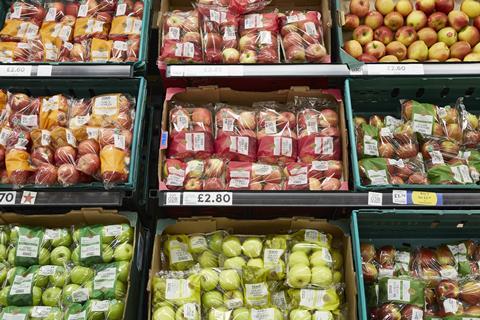
The Grocer first broke news of the looming reset in May, when it was said to be about the need for greater end-to-end simplicity in the supply chain. In contrast, Tesco is now billing the process very much as a joint battle to tackle inflation.
The rollout comes with supermarket pricing under heavy scrutiny by the Competition & Markets Authority. Despite latest Kantar figures this week showing food inflation continuing to fall, prices are still nearly 18% higher than a year ago.
Tesco cites a 50% drop in wholesale electricity prices, a 22% drop in PET plastic packaging prices, and an 84% fall in freight costs over the past year as factors that should enable suppliers to help it drop prices.
It also says it is reviewing the “end-to-end efficiencies” of virtually every product it lists bar non-food, and looking for ways it can use its store space differently.

Getting ahead
Tesco says the review is a chance to “step ahead” of its rivals, and improve its offer by simplifying ranges, making promotions more effective and upping its game in areas such as health, sustainability and world foods.
It also stresses the process is being led in-house, without “outside consultants” – an apparent attempt to distinguish it from Project Reset, which saw Tesco work with Boston Consulting Group. But the new project is likely to lean heavily on its Dunnhumby data arm.
Negotiation experts are quick to point out more fundamental differences between Fit for Growth and Project Reset, and warn Tesco will have its work cut out convincing suppliers to climb on board, at least voluntarily.
“This is very different to Project Reset,” says Sentinel Management Consultants CEO David Sables. “Back in 2015, Dave Lewis was tackling a business in crisis, which urgently needed to simplify its massively swollen range.
“This, on the other hand, is a sinister and tactical way to say to suppliers, you’re going to have to drop prices if you want to stay on shelf, under the guise of wanting more healthy products, more own label and more sustainability.”
Partnership approach or money grab?
- What’s involved? A range review across Tesco’s fresh and packaged products divisions, excluding non-food.
- When? The reset starts this week with a category relaunch of pasta and pasta sauces categories, to be followed by cereals, snacks, home baking, deserts and free-from, with other categories to follow.
- Store changes: Tesco is to conduct a macro review of opportunities to “drive increased efficiencies and space opportunities”, resulting in layout changes, following its widespread closure of in-store counters.
- The demands: Tesco wants lower prices from suppliers to reflect falling inflation, and improved performance on metrics including health, sustainability and own label standards.
Source: Tesco presentation to suppliers
Indeed, as well as price, Tesco is urging suppliers to reveal if they have set their own targets for the promotion of HFSS products, in line with its pledge that 65% of sales will come from healthy products by 2025. The supermarket cites research showing nearly 70% of customers find healthy food too expensive.
The cost of healthy food is an area in which former boss Lewis also made big pronouncements in 2018. Tesco’s subsequent urging of its supply base to respond never turned into a fully fledged cull of those who failed to take heed, but Sables believes that may not be the case this time.
“I think Tesco have decided they will now use areas such as health and sustainability to try to squeeze out even more efficiency in store, so they have given themselves a legitimacy to delist anyone they want.”
Groceries Code Adjudicator Mark White recently told The Grocer he was preparing for a new battleground between supermarkets and suppliers, as the surge in inflation turned in the opposite direction, though GSCOP is specifically barred from intervening on price.
“GSCOP is so vague, there will be nothing Mark White can do about it,” says Sables.
Resistance
Despite the potential threat of delists in the background, one supplier expects to see strong resistance to Tesco’s plans.
“Tesco is trying to put pressure on suppliers to reduce prices but until the cost of energy and fuel returns to pre-Ukraine levels, production costs will not fall,” the source says. “While wholesale energy costs have fallen, they have not been passed down the supply chain.
“Tesco will dangle the usual carrot – ‘Give us lower prices and we will deliver growth’ – but I don’t think many suppliers will be queueing up for the opportunity.”
Ged Futter, founder of The Retail Mind, also thinks Tesco will struggle to get supplier engagement.
“The presentation uses the word ‘partner’ or ‘partnership’ several times,” he says. “But what they are proposing is all about less range and lower prices. There is very little about how they will grow volumes.
“What they want is investment and money but what are they offering in return?”
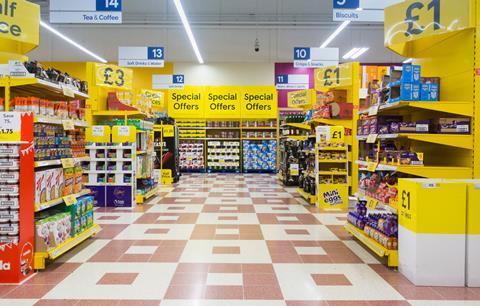
Futter also criticises what he calls a lack of “innovation or excitement” in Tesco’s plans.
The review promises moves including asking suppliers to switch to bigger case sizes, à la Aldi, better optimisation of truck loads and security tagging at source. It plans to bring in merchandising units for key items in aisles.
Tesco also sets out plans to improve its performance in the world foods category, where it admits it has fallen behind.
“We are working collaboratively with our supplier partners to deliver our range review,” says a Tesco spokeswoman.
“This partnership approach will ensure we are best-placed for mutual growth and can provide the best range of products for our customers. Our shared objectives for the review are to continue to deliver great availability and quality, at the same time as maintaining our focus on value, health and sustainability.”
All suppliers, at least any responsible ones, share such values. But the extent to which they are prepared to pay for them by way of reduced range, and the speed with which they will lower their prices, are less certain.







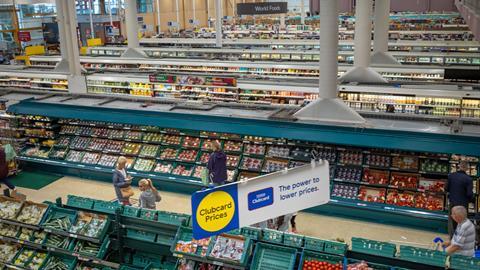
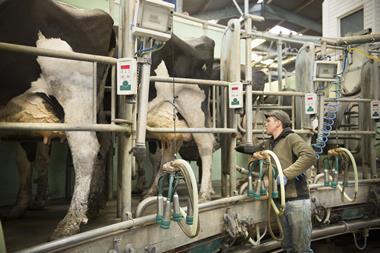




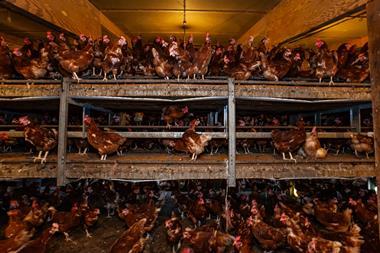






No comments yet